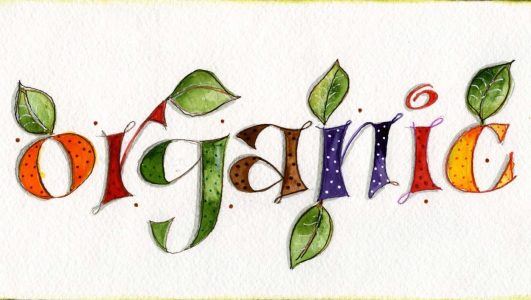When most people think of living organic, they think of food. This means that you buy foods that are free from fertilizers and pesticides.[1] However, you can live a more organic lifestyle in other ways too. You can use cleaning supplies that are made up of organic products, you can reduce the amount of waste you produce, and by finding ways to travel around without leaving a huge carbon footprint. Put simply, living an organic lifestyle means doing your best to live a healthy lifestyle while also doing your part to take care of the environment.
- Look for eggs that are, at a minimum, certified organic. This means that the birds were not fed any type of hormones or antibiotics. However, if you are also concerned for the welfare of the animals, look for eggs that are “certified humane raised and handled” or at least “free range.” This means that the birds are not kept in tiny cages their whole lives, and are given at least some opportunity to go outside and live like normal chickens.[3]
- Choose meats and dairy products that are certified organic. This means that the animals are not given any synthetic hormones or antibiotics meant to speed their trip to the slaughterhouse and keep them from getting sick in their inhumane living conditions. These chemicals are often able to survive the cooking process and end up in your body.
2. Buy locally. Depending on where you live, this may limit some of the fruits and vegetables you have access to, but buying locally supports your local economy and it also reduces green house gasses by eliminating the need to transport your food from far away countries.[4]
- The best way to find local products is to visit your local farmer’s market. If you don’t have a farmer’s market in your area, look for small organic shops around where you live as these usually source local products.
- Another option, that is becoming more popular, are fruit and vegetable boxes delivered to your door. These boxes are available in many areas and contain fresh fruits and vegetables, usually from local farmers. A great thing about this is that it will encourage you to try out fruits and vegetables you maybe wouldn’t have otherwise tried.
- Be aware though, that just because you bought something at a farmer’s market or because it came out of a veggie box doesn’t mean it is organic. Before purchasing anything ask the person you are buying something from where it came from and what products were used to grow it. Organic food should be grown without the use of fertilizers or pesticides.
- When it comes to meat and eggs, you can look for small farms in your area, some of which may be able to sell you fresh meat and eggs directly from the farm. Make sure to ask them about how the animals are raised and whether they are fed any antibiotics or hormones.
3. Make your own meals. While more and more organic restaurants are popping up, you can never be sure where the ingredients on your plate have come from unless you have purchased and prepared them yourself. If you really want to live a completely organic lifestyle, avoid eating out as much as possible.[5]
- That’s not to say you can never ever eat out again as long as you live. You can, but try to limit this to special occasions. When you do eat out, try to choose places that promote the use of organic ingredients. Research the restaurant before you go there to make sure they actually practice what they preach.
- Gardening is also a great hobby. Many people find it very relaxing and rewarding.
- A 4×4 foot bed will be able to grow all the vegetables that one person can eat, and even small window boxes can grow a few herbs or vegetables to supplement your meals.
